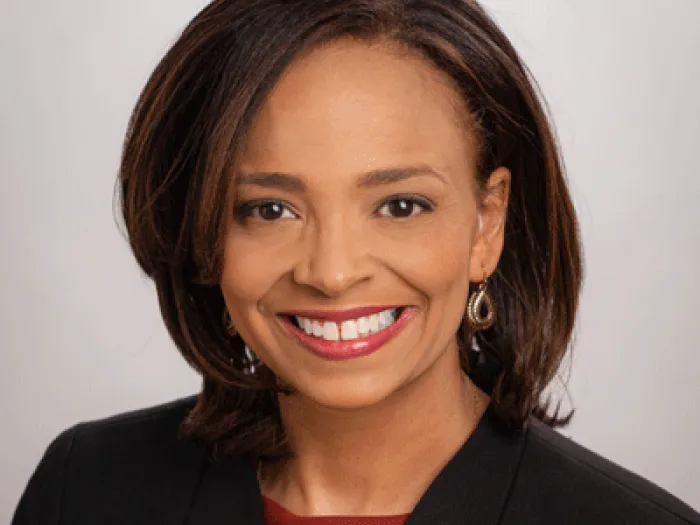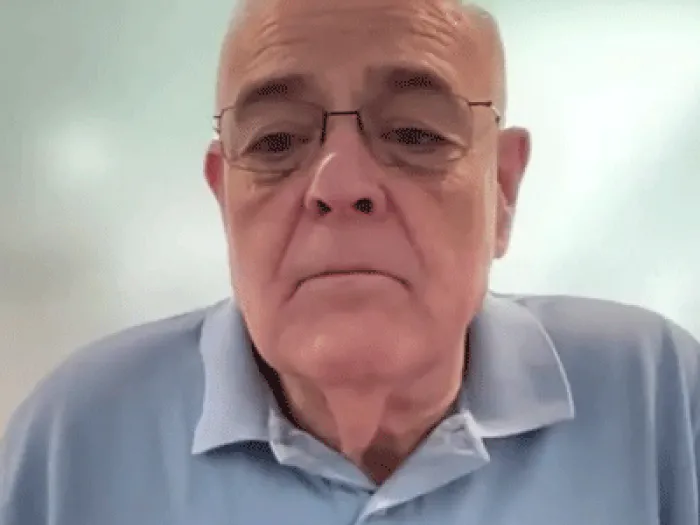Effecting change from inside the corporate tent
Tim Smith, senior policy advisor for the Interfaith Center on Corporate Responsibility, talks about shareholder engagement on the ‘A Matter of Faith’ podcast


LOUISVILLE — Asked during the most recent edition of “A Matter of Faith: A Presby Podcast” to define “shareholder engagement,” Tim Smith had this succinct answer: It’s “investors taking seriously that they’re partial owners in companies.”
Smith, the senior policy advisor for the Interfaith Center on Corporate Responsibility, which the Presbyterian Church (U.S.A.) helped to found a half-century ago, was the guest last week of “A Matter of Faith” hosts Simon Doong and the Rev. Lee Catoe. Listen to their 52-minute conversation here.
As owners of a piece of a company, shareholders “have a responsibility to evaluate what the company is doing and, in the case of the church, compare what the company’s actions and policies and pronouncements are compared to what the church stands for, and to see where there are points of congruence and misalignment,” Smith told Catoe and Doong. Doong works in the PC(USA)’s Office of Faith-Based Investing and Shareholder Engagement, which includes the Committee on Mission Responsibility through Investment.
Based on that responsibility, the PC(USA), together with other denominations, pension funds, investment firms, foundations and trade unions have been “engaging companies and talking to them about issues of mutual importance, and sometimes joining to put pressure on them to make changes,” Smith said. The church “has spoken out and had its voice … heard on dozens of issues over those decades.” Among the examples, Smith cited these three:
- The PC(USA) and other denominations formed ICCR during the early 1970s, in part to “raise questions with companies that were investing in apartheid in South Africa,” Smith said. Over the years, that pressure helped bring the government of South Africa to the negotiating table and resulted in “the peaceful transfer of power, which was something we had hoped for, but we feared might not happen. That pressure, that voice, that stick-to-itiveness paid off.
- A few years later came “an issue we called the baby formula debate,” Smith said. For years, infant formula companies had been selling formula around the world, “which is their right,” Smith said. But they were also promoting it as “better than breast-feeding and the right thing to do to feed babies.” Parents who didn’t have the money to purchase enough formula were forced to water it down, and some of them lived in countries where the water they mixed with what formula they had made their babies sick. Presbyterians and others came together to put pressure on the formula producers, including boycotting, to get the companies to change their marketing strategies. In the end, the World Health Organization “stepped up and created a code of conduct to describe how companies had to do business as they were marketing their formula or producing it overseas,” Smith said. Presbyterians not only “filed resolutions and had conversations and debated things, they were actually involved in a boycott of Nestlé products as a way of putting pressure on them.”
- “Let’s jump forward” for the third example, Smith suggested. “One of the issues the Presbyterian Church is joining with all sorts of investors globally is climate change.” Many of those companies “understand this message and are quite proactive themselves. But others need to hear the voice of investors who are saying, ‘We need you to change. We need you to take action.’ The Presbyterian Church is one of the denominations who has been a real leader speaking out on climate change and organizing to make sure investors are working together to send a message to boards” and to companies’ senior management, Smith said. Recent General Assemblies have seen “spirited debate around divestment from oil and gas companies,” Smith noted. Some investors have concluded, “I think our commitment to protecting God’s Creation is such that we don’t want to invest in companies that are contributing to climate change and to the real threat of our planet. The other side to the debate is those you would say, ‘You know, I understand the role the companies are playing in creating greenhouse gases that are causing this planetary danger, but as an investor, as an owner, we have a chance to have our voice heard and change a company’s behavior.’”

Doong said one thing that “people may not be aware of in the corporate engagement and shareholder engagement space is the actual ability to move a company to change. … If you’re a shareholder in a company, there is a certain amount of influence that you have.”
“We are not involved in the work of engaging companies simply because we want the moral voice to be heard speaking for social change in that context. We’re there because we want to be a force for change, to be a catalyst within companies to bring about change,” Smith said, adding there are “hundreds of examples of changes companies have made in response to petitioning and pressure by shareholders. They’re on issues like governance; on social issues like diversity, equality for women and racial justice; and on issues like the environment. We can proudly point to the fact that we’re difference-makers in the process but let me qualify that by saying sometimes it takes time.”
Smith sometimes hears this from a company: “You made some good points, but we can’t go quite that far.” After a few years, “they start evolving,” Smith said. On the other end of spectrum are companies aggressively critical of shareholders, “even though they’re owners of the company,” Smith said.
On climate change, “it’s inappropriate to demonize companies because we’re consumers of those products that are causing climate change,” Smith pointed out. “The Presbyterian Church has not engaged in this work for these many years by villainizing companies or acting in a confrontational way. They have truly tried to engage companies, to have dialogue with them, find middle ground, commend them for forward progress, and press when they think pressure is needed.”
“When we engage with companies, we don’t sit down with them and start reading Scripture verses and say, ‘You’re bad,’” Doong said. “We sit down, and we say, ‘We’ve read everything that you’ve ever disclosed, and we’re read every report about your operations. We want to see you succeed, but you need to show us that you’re taking climate change seriously. … How are you increasing diversity, equity and inclusion initiatives within your own company?”

“It’s not always easy work,” Doong said, “but it’s very important work.”
Doong noted the PC(USA) publishes a list of proxy voting recommendations “that folks can support if they own shares in companies on a variety of justice issues.” In addition, in recent years, “there has been much more of a push to involve frontline communities impacted by the operation of companies and to get that voice heard by investors and shared in the boardroom.”
Whether it’s “indigenous people in Alaska or people in poor communities in what’s called ‘Cancer Alley’ in Louisiana who live near chemical plants and have their health badly affected, those are voices from the frontlines that do get raised up in those discussions,” Smith said.
New episodes of “A Matter of Faith: A Presby Podcast” drop every Thursday. Find previous ones here.
You may freely reuse and distribute this article in its entirety for non-commercial purposes in any medium. Please include author attribution, photography credits, and a link to the original article. This work is licensed under a Creative Commons Attribution-NonCommercial-NoDeratives 4.0 International License.




